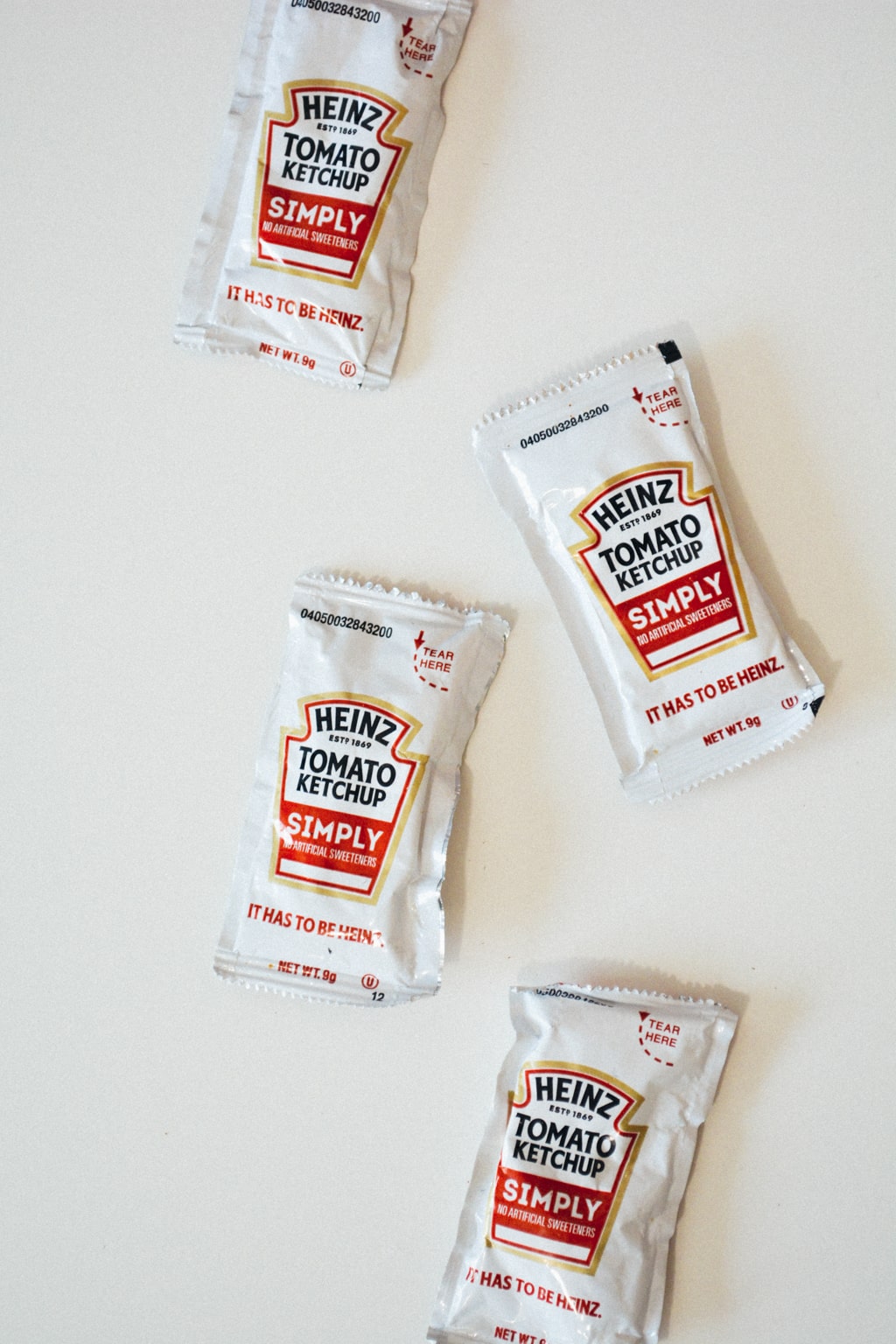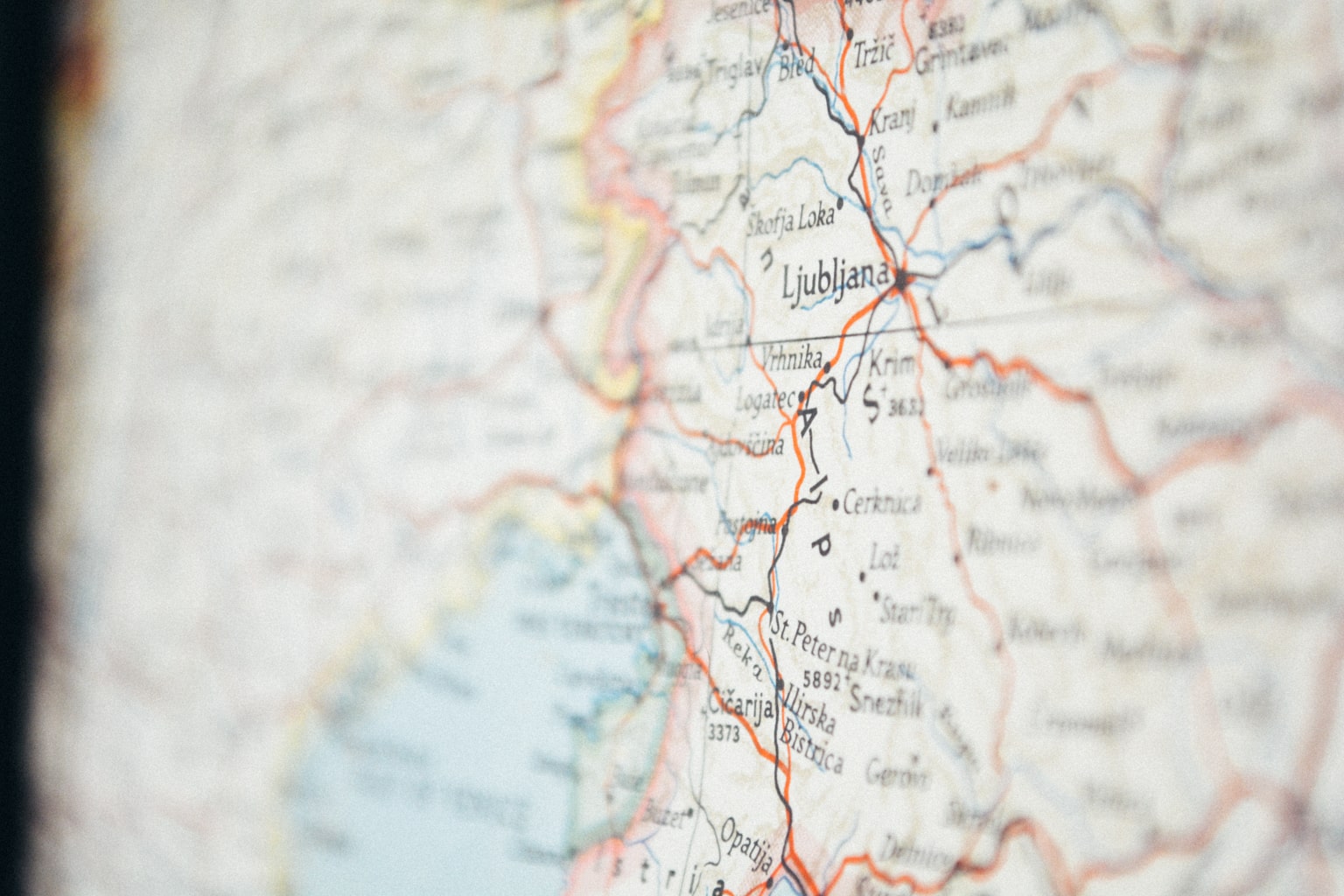
When I was eight, I came to America, land of the unlimited condiments. A precocious brush with history prepared me for Ponce de León’s springs of water, but none of my books had prepared me for America’s ketchup spouts. And yet, there they were, like mythical fountains of eternal wealth, on fast food countertops spread with bins of sugar packets and cups of red plastic sticks, in a land where burglars and kings battled for America’s hearts and stomachs.
I’d never before encountered the idea of begging people to eat. I knew about the reverse: people begging to eat, yet here in America, I saw this phenomenon in reverse. Here was a place where multicolored boxes of sugared cereal were stacked from floor to fluorescent ceiling, soup was turned to jello and pressed into cans, and food for cats and dogs took up dozens of linear meters of space in super-sized markets. Here was a place where my newfound cousins scraped unwanted meals into overflowing trash cans — and were rewarded for it by adults scooping neon blue ice cream out of plastic buckets into their outstretched cones — and yet, still, brands begged consumers to eat.
In the grocery store, town criers emblazoned with logos handed out keychains and sweatbands to anyone who would promise to look at their processed food products. Shoppers didn’t even need to try the items, or even pretend they would in the future. They merely needed to nod an acknowledge to the existence of these excess foodstuffs, and they would be rewarded with tchotchkes destined for the rearview mirror, the junk drawer, or for personal trash containers the size of a small car.
Here in America, children wore oversized sweatshirts advertising frosted desserts and carbonated juice, covered their notebooks with stickers from food manufacturers, and cut order forms out of cereal boxes to order even more. I had a Jupi soft drink logo in the inside front cover of my Gideon Bible, but that’s because we’d steamed the label off a green glass bottle after sharing every last drop. Here, my cousins laughed and poured cans of soda off the end of lakeside docks if they didn’t want the flavor, then went and chose another from a cooler plastered with the logo of a snack food they didn’t even like.
But America, land of the shrink-wrapped hotdog and home to oats bearing the portrait of a laughing colonial figure, was also the land of unlimited ketchup.


Ketchup, I knew, tasted like freedom. No one in America believed I knew a man named Heinz. American adults thought I was making everything up, even when I told them the water in Greece was green and the streets of Venice were water. Americans, as far as I could tell, believed children knew nothing. And as far as I could tell, that seemed to be true here. When I climbed to the top of the slide and asked a girl what languages she spoke, she laughed, made up a string of gibberish, and slid down the slide.
I decided I didn’t need American friends. I would stick with American ketchup. In America, faucets flowed with ketchup, and you could catch all you wanted in little fluted paper cups. I even saw people fill pockets with tinfoil bags of ketchup, then stack them up like tiny sandbags inside a drawer at the front of the car.
Everywhere I went, Americans had a buffet of condiments. Everywhere I looked, I saw food. And everywhere I listened, people complained about it.



